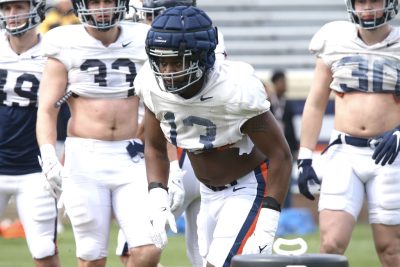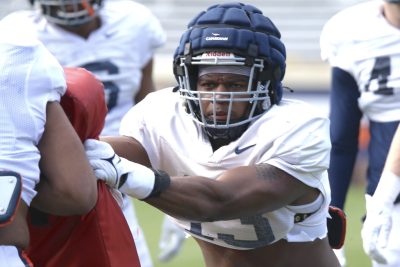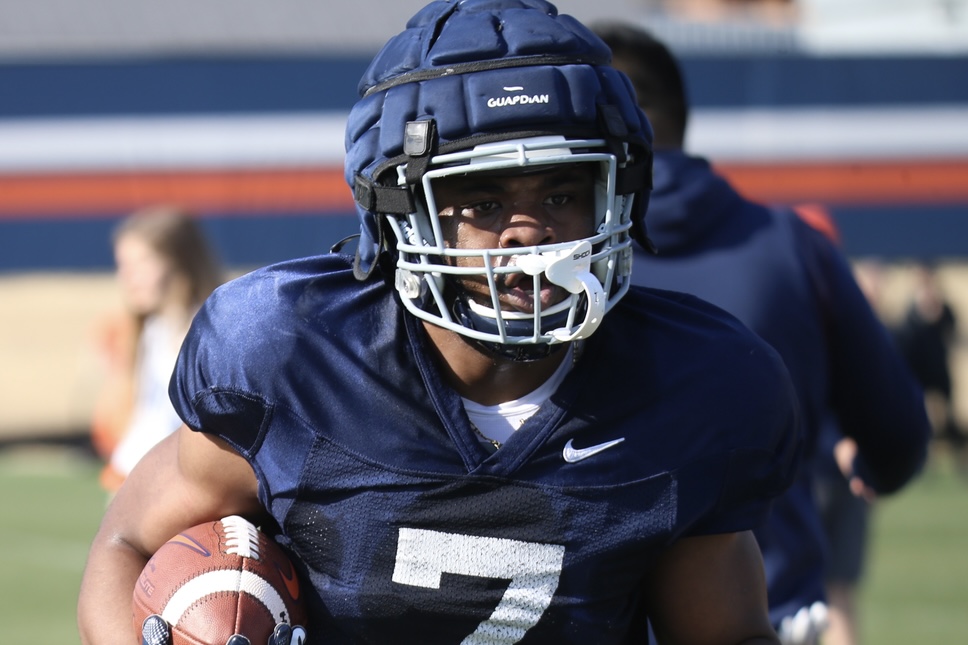By Kenneth Cross
JerryRatcliffe.com correspondent

As coach Tony Elliott assumed control of the Virginia football team last December, he came with a stellar reputation as the offensive coordinator at Clemson. After all, the Tigers won two national championships and played for four.
Elliott, though, knew that there had to be a smoldering of a defense that gave up 466 yards and 31.8 points per game last season.
His transition seemed like it was from square one, as his strategy was to bring the positive back into the program as his players could reminisce about why they got into playing football.
“When Coach E (Elliott) came and the new staff came, they took us back to the basics,” explained linebacker Hunter Stewart. “They wanted to get back to why we started playing football — that joy of just playing the game.”
Stewart was the ninth-leading tackler on the team with 37 stops, as well as two quarterback sacks and four quarterback hits. Stewart has openly embraced how Elliott and defensive coordinator John Rudzinski came in and fostered an approach to a rebuild on the defensive side of the football.
Stewart saw and felt an immediate focus of the approach and the idea that Elliott and his staff would have to take the Virginia defense inside of the game.
“We had to try to get all that outside world — the media and all of them — just get those out of our heads,” noted Stewart.
The approach by Elliott and his staff was to get the entire team and every player to think about why they started playing football. Of course, these are talented and athletic Division-I players who all have different stories and perspectives about how they have wound up with their positions at Virginia and the D-1 level.
 Stewart saw the advantage and the opportunity that Elliott and the new coaching staff comprised for their new team.
Stewart saw the advantage and the opportunity that Elliott and the new coaching staff comprised for their new team.
“I feel like once we got in the headspace, the game became a lot more physical and a lot more energetic, and a lot more of everybody just coming with a different mindset,” he said.
It was a situation where all players on the team thought back, and happiness and positivity was restored by a solid exercise which was led by the staff. Stewart had goals, but in the beginning, the goals did not start with playing football.
“I started playing football because I enjoy hitting people, so I started off karate and that didn’t work out,” he explained. “So by the time I turned six, football was my thing.”
Stewart noted how new members of the staff had worked with the players’ mentalities, and he noted that this setup had put him in a better condition from both a mental and a physical standpoint.
“I have worked on coming with a twisted mindset, just like linebackers you are the quarterback of the defense,” said Stewart. “We’re a little bit everywhere. Sometimes you are in coverage, sometimes you are in the slot, sometimes you are going up against a 300-pounder, so coming with a twisted mindset is like I am going to do whatever I say I am going to do.”


